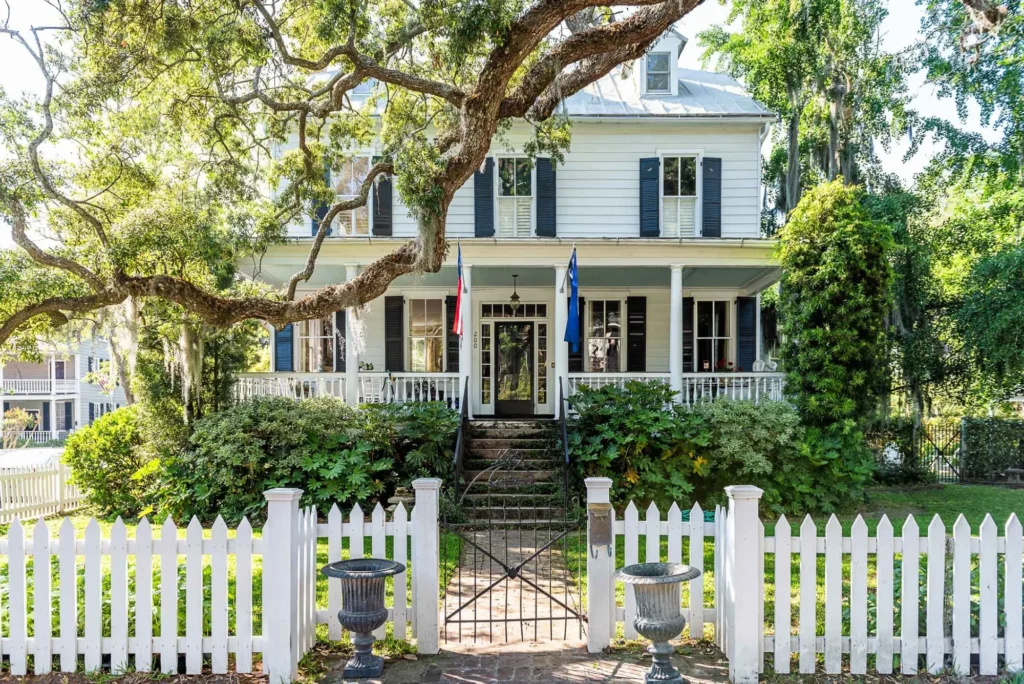
Hornet Control in Lowcountry, SC — Fast, Family-Safe Removal
Lowcountry, South Carolina, with its iconic live oaks, saltwater marshes, and historic charm, is known for its natural beauty. However, the same warm, humid climate that makes this region attractive to visitors and residents also creates perfect conditions for hornets and yellowjackets. The lush greenery, coastal breezes, and long summer months foster ideal habitats for these pests. Unfortunately, hornet nests can appear in roof eaves, porches, shrubs, and even hidden areas of homes, creating hazards for homeowners. In Lowcountry, where outdoor living is a big part of the lifestyle, hornet stings can turn a relaxing evening into a dangerous experience, particularly for those with allergies.
If you notice increased hornet activity around your Lowcountry home, especially in areas such as Beaufort, Hilton Head Island, or Bluffton, it’s time to call a professional. All U Need Pest Control specializes in fast, discreet hornet control that keeps you safe while preserving your home’s charm. Our approach includes thorough inspections, precise nest removal, targeted treatments, and customized prevention strategies, all designed for the unique climate and architectural style of Lowcountry homes.
Pest Control Services in Lowcountry, SC
- Ant Control
- Bed Bug Control
- Beetle Control
- Cockroach Control
- Flea Control
- Home General Pest Control
- Millipede Control
- Mosquito Control
- Pantry Pest Control
- Rat & Rodent Control
- Scorpion Control
- Silverfish Control
- Spider Control
- Stink Bug Control
- Termite Control
- Tick Control
- Wasp Control
- Winter Control
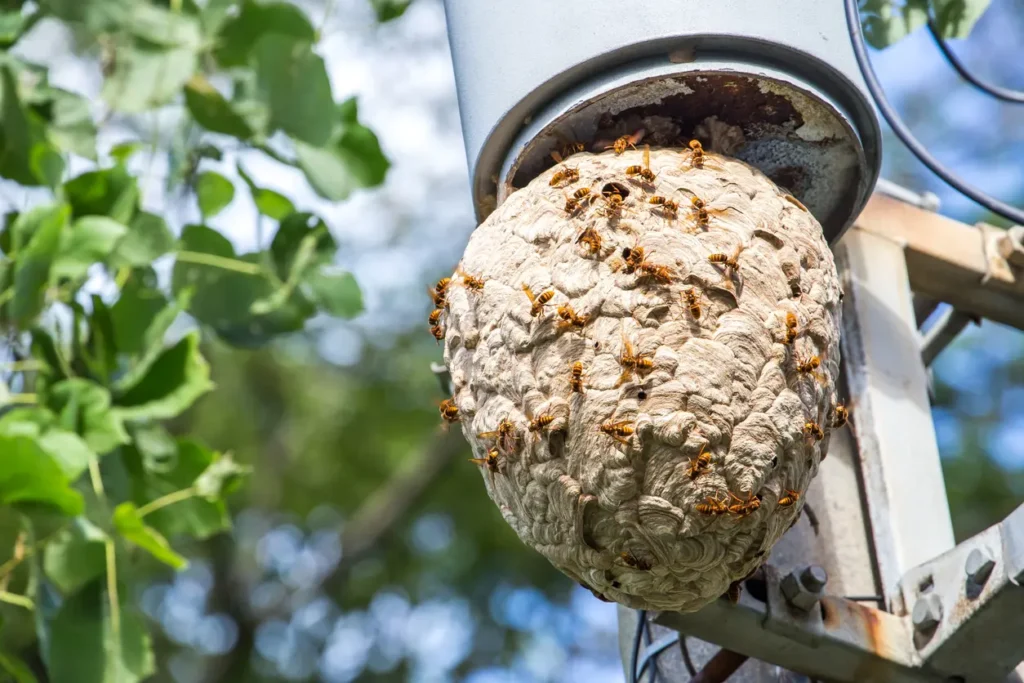
How to Get Rid of Hornets in Lowcountry, SC
In Lowcountry, SC, hornets can establish their nests quickly due to the area’s consistently warm weather, abundant vegetation, and occasional heavy rains. Homeowners often see signs of hornet activity during the spring and summer months when the humidity is high and thunderstorms frequent. It’s tempting to try DIY methods to control the hornet population, but disturbing a nest can trigger aggressive behavior from the insects. The best approach is to rely on a professional service that understands local hornet species and the environmental factors that contribute to nest formation.
A comprehensive hornet control plan in Lowcountry typically includes an inspection, safe nest removal, treatments to eliminate the current infestation, and exclusion efforts to prevent new nests from forming. Due to the region’s architectural diversity, special attention is paid to raised foundations, crawl spaces, and hidden voids within older homes, where hornets like to build their nests. Additionally, thick vegetation around homes—such as azaleas, jasmine, and palmettos—can conceal aerial nests, requiring professional expertise to spot and remove them.
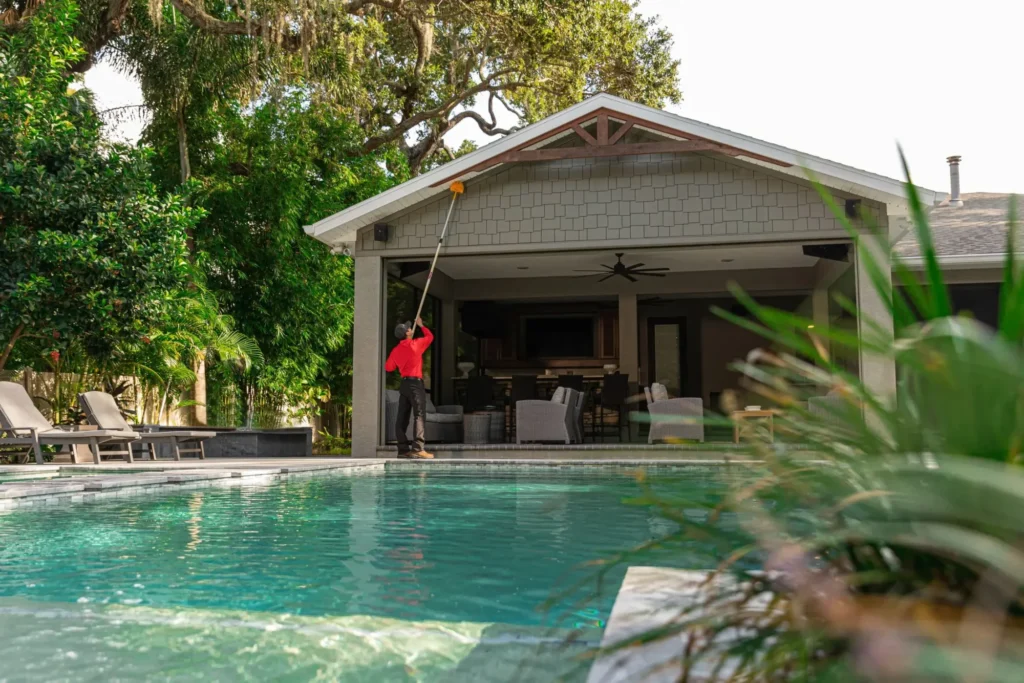
Hornet Treatment in Lowcountry, SC
Lowcountry’s humid climate, strong winds, and coastal storms mean hornet treatments must be customized to address both the visible issue and the underlying environmental factors. Our hornet control strategy is designed to meet the unique challenges presented by Lowcountry weather and architecture.
A Comprehensive Inspection
The first step in hornet control is a detailed inspection to identify areas of concern. Our technicians survey eaves, soffits, porch rafters, attic vents, fence lines, sheds, and tree canopies to track hornet activity. In Lowcountry, homes often feature elements like raised foundations and wooden elements with small gaps where hornets can build nests. We also pay special attention to older homes with aging wood joints or decorative trim that may have developed cracks over time, providing easy access for hornets to establish a nest.
Nest Removal
Nest removal is an intricate task that requires the right timing and equipment. We carefully choose the removal window, often during the early morning or late evening, to minimize the risk of swarming. Using professional gear, we neutralize the hornet colony before removing and disposing of the nest safely. Whether it’s an aerial nest or a structural void nest, our team follows specific procedures to ensure the safe removal of the colony without aggravating the insects.
Targeted Treatments
Rather than using broad sprays, we apply targeted treatments designed to reach the hornets where they are most active. Our professional-grade formulations are strategically placed around the nest, primary ingress points, and high-traffic zones. We choose products that are safe for families and pets while ensuring effective control of the hornet infestation.
Exclusion
Once the nest has been removed, we implement exclusion strategies to prevent future infestations. We seal utility and cable penetrations, screen attic vents, close small gaps around fascia and soffits, and suggest changes in lighting placement. In addition, we advise on landscape modifications such as thinning or trimming dense shrubs and trees to reduce the shaded areas that hornets favor. Our goal is to make your home less inviting to hornets, reducing the likelihood of re-infestation.
Integrated Pest Management
After the nest removal and exclusion steps, we continue to monitor your property for new hornet activity. This proactive approach, known as Integrated Pest Management (IPM), is tailored to Lowcountry’s specific rhythms, such as frequent thunderstorms, rapid plant growth, and the seasonal behavior of hornets. Our IPM strategy ensures ongoing protection, adapting to changes in the environment and seasonality.
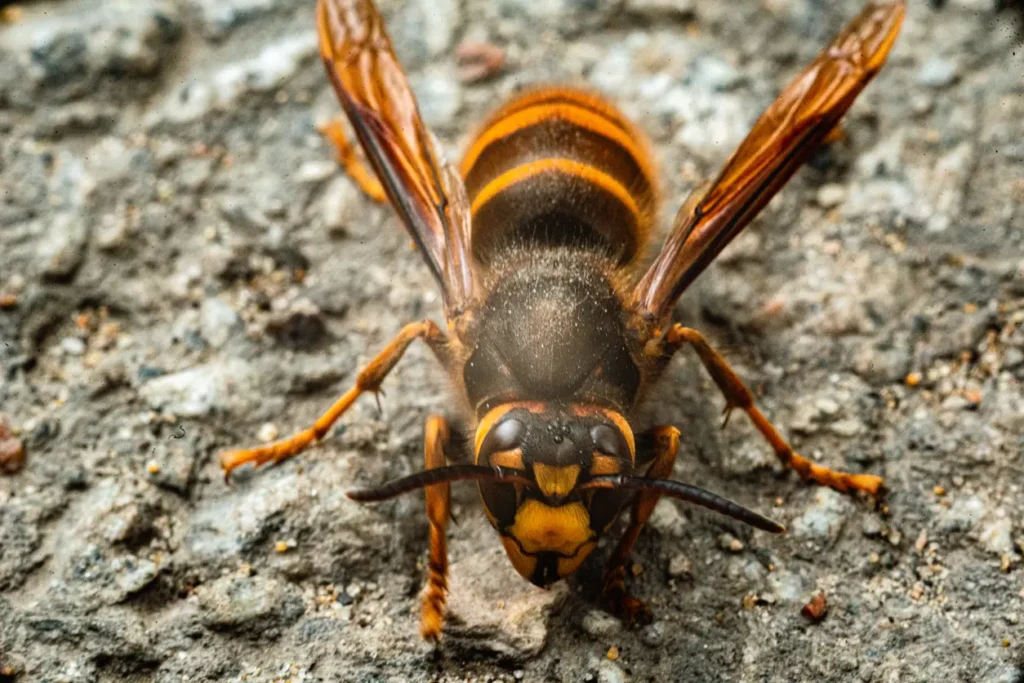
Signs of a Hornet Infestation in Lowcountry, SC
Knowing the early warning signs of a hornet infestation is essential for preventing larger problems. In Lowcountry, the warm, humid conditions and dense vegetation can make hornet nests harder to spot, but with a keen eye, you can detect trouble before it escalates.
Hornet Sightings
The most common sign of a hornet infestation is the sighting of the insects themselves. Hornets in Lowcountry, especially bald-faced hornets and yellowjackets, can often be seen near porches, dining areas, and trash bins, where they forage for food. If you notice hornets consistently patrolling the same area of your home, it’s a good indication that a nest is nearby.
Increased Hornet Activity
If you suddenly notice a spike in hornet activity around certain areas of your property—especially in dense tree canopies or thick foliage—it’s time to take action. Areas such as Hilton Head Island, Bluffton, and the outskirts of Beaufort, with their heavy tree cover and lush vegetation, are particularly susceptible to hornet nesting. If you see hornets actively entering and exiting a specific spot, call a pest control expert to investigate further.
Hornet Nests
Hornet nests in Lowcountry often resemble a gray, papery, football-shaped structure. These nests are typically found in the upper canopies of trees or under porches. If you notice one of these nests, avoid disturbing it, as hornets can become highly defensive.
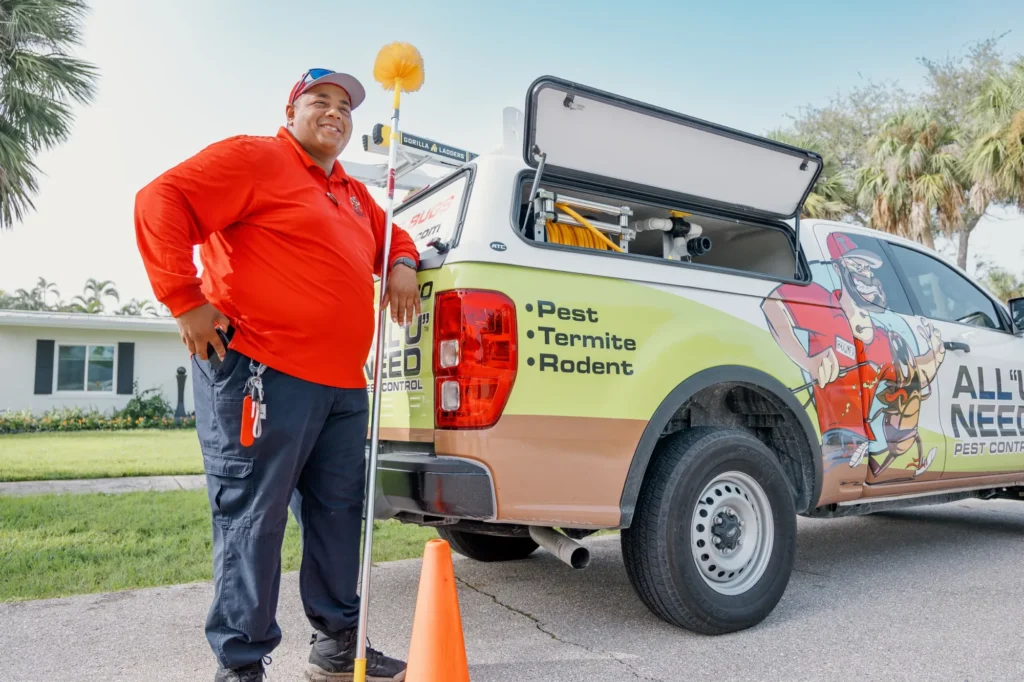
How to Check for Hornets in Lowcountry, SC
When inspecting for hornets, safety is paramount. Hornet nests can be aggressive, so it’s important to observe from a distance and avoid disturbing them. Early mornings and evenings are the best times to spot hornet activity. Here are some signs to watch for:
- Repeated hornet flight to a specific gap or area of the home
- Paper-like nest material tucked in shrubs or in tree canopies
- Buzzing sounds in walls or ceilings
It’s important to wear protective clothing if you plan to investigate any suspicious activity. Never try to remove or block a nest yourself. Always call a professional pest control service to safely handle the situation.
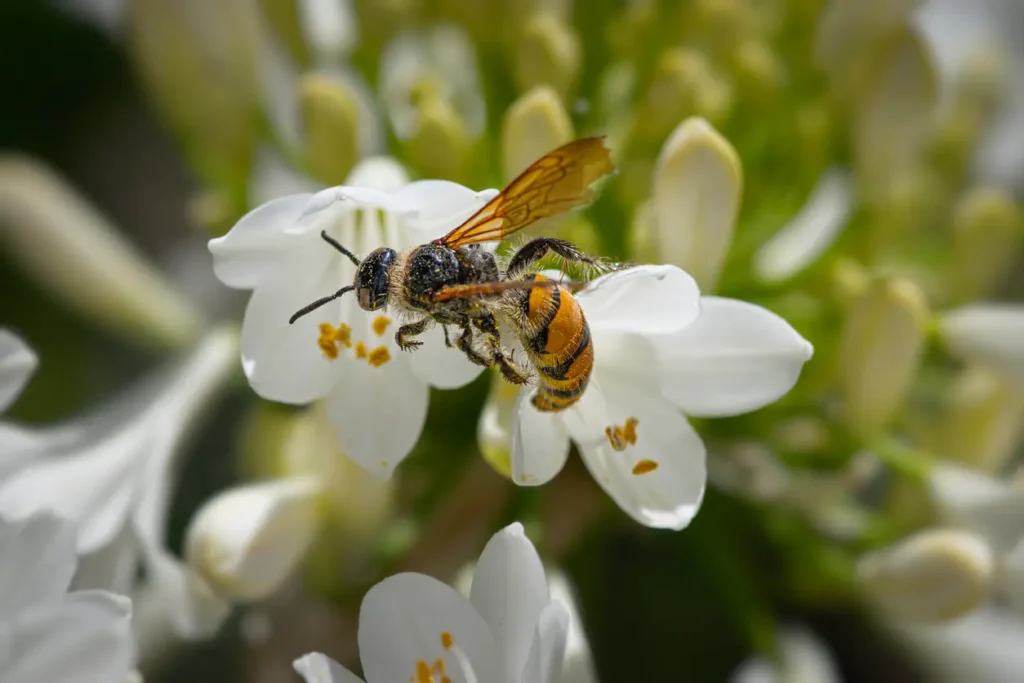
What Do Hornets Look Like in Lowcountry, SC?
In Lowcountry, several species of hornets and yellowjackets are common. Here are three of the most frequent offenders:
Southern Yellowjacket
The southern yellowjacket is small but aggressive, with black-and-yellow striped bodies. These hornets often nest in the ground or in structural gaps, particularly in areas with older homes or dense vegetation. Their nests can be hidden in hard-to-reach areas, making it challenging for homeowners to identify them without professional assistance.
Eastern Yellowjacket
Larger than the southern yellowjacket, the eastern yellowjacket is an opportunistic nester. It prefers to build nests in attic spaces, hollow walls, and ground voids. Their nesting habits often lead them to urban areas where older structures provide easy entry points.
Bald-Faced Hornet
Bald-faced hornets are large, black-and-white wasps known for building exposed, paper-like nests in trees, shrubs, and under porch eaves. These nests can grow quickly during the summer months, and the hornets become more aggressive as their colony matures.
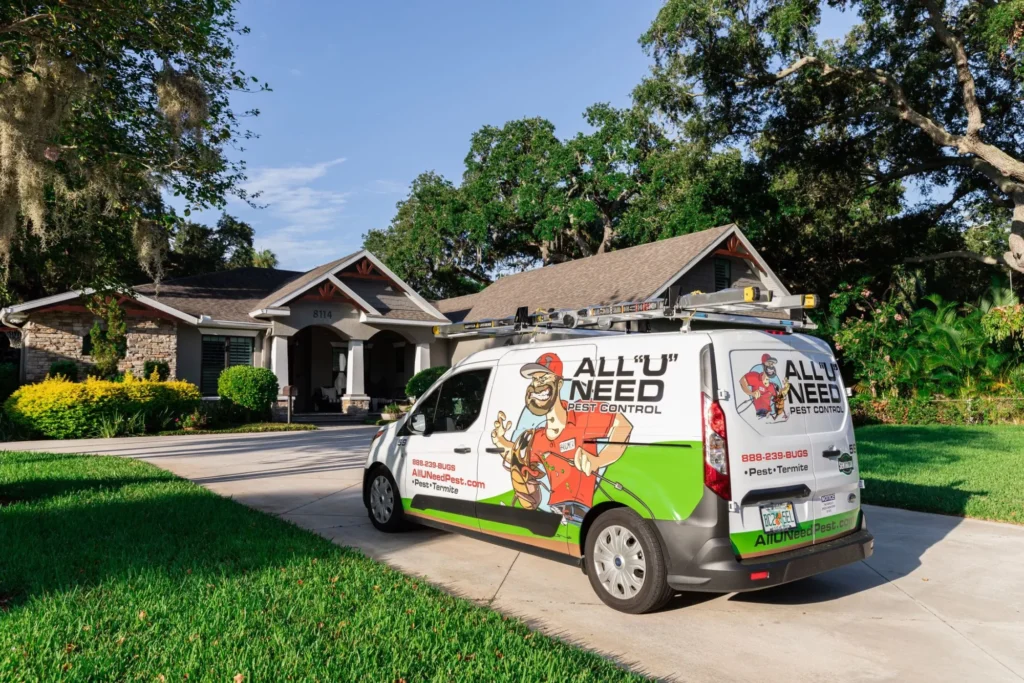
Eco-Friendly Solutions in Lowcountry, SC
Lowcountry, SC, with its delicate coastal environment, requires an eco-conscious approach to hornet control. Protecting the natural beauty of the region while keeping homes safe from hornet infestations is key. At All U Need Pest Control, we emphasize methods that are both effective and environmentally responsible.
Natural Repellents
In certain low-risk areas, we use natural repellents that are based on botanical ingredients. These repellents discourage hornet activity without the use of harsh chemicals, making them ideal for sensitive environments like gardens or near water sources. While natural repellents aren’t a replacement for professional removal of active nests, they can be effective in reducing the likelihood of hornets re-establishing a colony in certain areas.
Habitat Modification
Habitat modification is an essential part of our hornet control approach. In Lowcountry, hornets prefer areas with sheltered, undisturbed environments. We recommend adjusting outdoor lighting, removing food waste, and ensuring that areas near your home are clear of debris and clutter. By removing potential nesting sites and improving visibility, we help discourage hornets from building their nests close to your home. Additionally, trimming dense vegetation around your home can reduce the shaded areas that hornets prefer.
Exclusion Techniques
Exclusion is a critical component of hornet control in Lowcountry. We seal potential entry points, such as small gaps in the soffits, fascia, and utility penetrations, with durable pest-rated mesh. These modifications help maintain ventilation while keeping hornets from finding a place to nest. Our team also provides advice on architectural enhancements that can make your home less inviting to hornets, such as installing tighter screens on vents and using pest-rated mesh for crawl spaces.
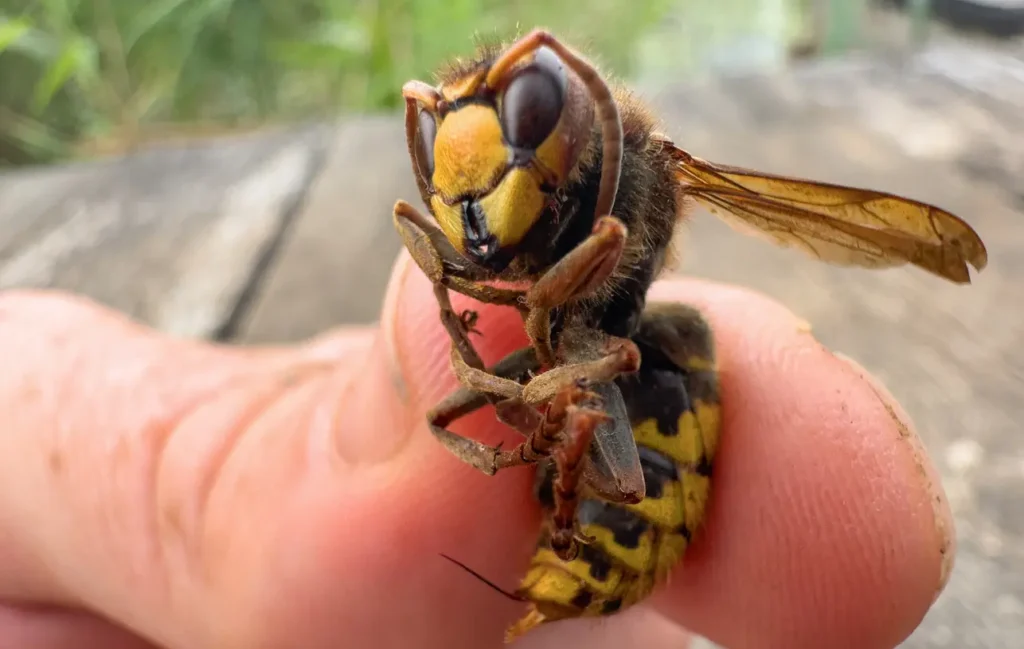
How to Prevent Hornets in Lowcountry, SC
Preventing hornets from nesting around your home requires proactive measures that address common attractants. In Lowcountry, where the summer months are long and warm, early intervention is key to keeping hornets away. We focus on minimizing the factors that make your home attractive to hornets, so you can enjoy the beautiful weather without the worry of stings.
Reduce Outdoor Clutter
Outdoor clutter, such as stacked materials, overturned pots, and neglected storage spaces, can provide shelter for hornets looking for a place to build a nest. By keeping your yard clear of such debris, you reduce the likelihood of hornets finding a suitable nesting spot. In Lowcountry’s humid environment, hornets tend to favor areas that provide shelter from the elements. Keep sheds, playsets, and garden areas tidy and well-maintained to discourage hornets from settling in.
Trim Vegetation
Pruning and trimming vegetation around your home is another effective way to prevent hornets from nesting. In Lowcountry, dense tree canopies and overgrown shrubs provide perfect cover for hornet nests. By trimming back trees and shrubs that touch the house, you expose potential nesting sites to the sun and breeze, making them less appealing to hornets. Additionally, thinning out dense foliage improves air circulation, which can help deter not only hornets but also mosquitoes and other pests.
Get Rid of Food Waste
Hornets are attracted to food sources, especially sugary substances. In Lowcountry, with its vibrant outdoor culture, it’s common to host gatherings and cookouts. After such events, make sure to clean grills, remove food scraps, and rinse out cans and bottles before disposing of them. Hornets are especially drawn to sugary drinks and food scraps left outdoors, so creating a habit of cleaning up after meals can go a long way in preventing infestations.
Seal Trash Cans
To keep hornets from foraging around your property, make sure trash cans are tightly sealed. In Lowcountry, where food waste can accumulate quickly during summer barbecues and outdoor events, it’s essential to keep trash cans a reasonable distance from your home and ensure they are sealed tightly. A clean trash area reduces the risk of attracting hornets and other pests to your yard.
Cover Holes in Your Lawn
Holes in your lawn or garden may attract hornets, particularly yellowjackets, which often use abandoned rodent holes as entry points for their nests. If you discover small voids or burrows in your yard, have a professional inspect them before filling them in. Our team can help determine if these holes are being used by hornets and advise on the best course of action.
Additional Preventive Measures :
- Use low-wattage lighting or warmer-spectrum bulbs on porches to reduce attraction during peak hornet flight times
- Keep outdoor dining tables and surfaces clean and covered when not in use
- Post clear signage around your property to inform guests of active hornet removal zones during pest control operations
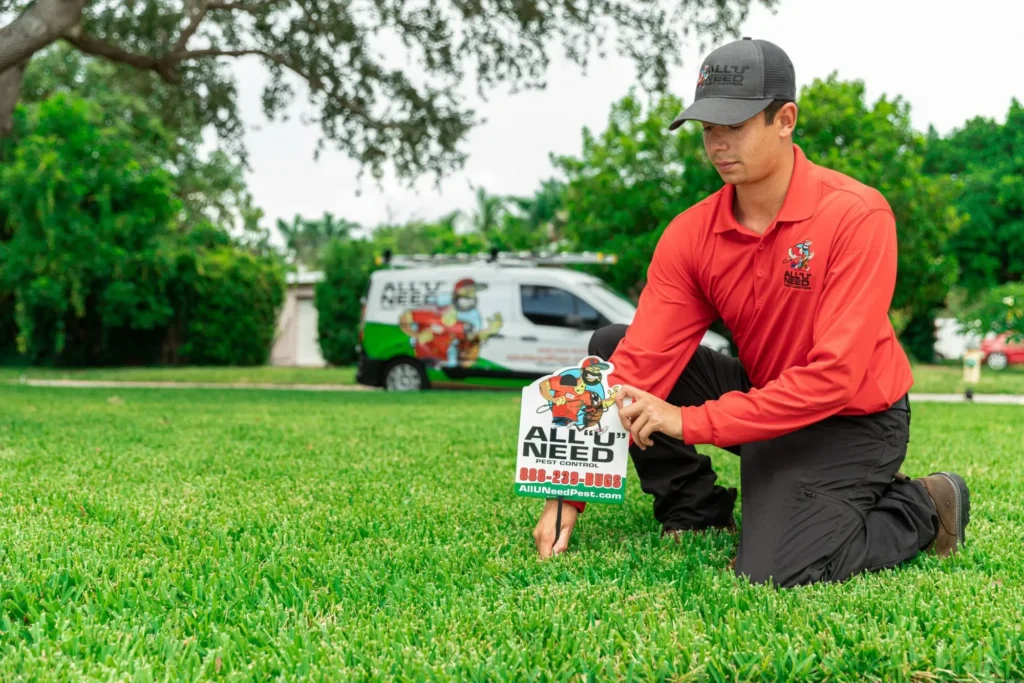
Why Choose All U Need Pest Control for Hornet Control in Lowcountry, SC?
Hornet control in Lowcountry requires expertise, especially considering the region’s unique climate, vegetation, and architectural styles. At All U Need Pest Control, we offer more than just nest removal—we provide comprehensive, long-term solutions tailored to your home’s specific needs.
Our team brings decades of experience in pest control, ensuring that our services are both effective and safe for your family. We understand the local conditions in Lowcountry, including the challenges presented by the humid climate, frequent storms, and unique home designs, such as raised foundations and coastal landscaping. Our goal is to protect your family, pets, and guests, allowing you to enjoy the beautiful Lowcountry lifestyle without the worry of hornet stings.
We offer transparent pricing, clear communication, and a satisfaction-first approach. If hornet activity continues after treatment, we’ll return promptly to reassess the situation and make any necessary adjustments. We serve the entire Lowcountry region, including Hilton Head Island, Bluffton, Beaufort, and surrounding areas, with flexible scheduling and respectful service.
When you’re ready to reclaim your yard, porch, and peace of mind, contact us today at 1 (888) 239-BUGS or reach out online. We’ll inspect, remove, and protect, so you can get back to enjoying life in Lowcountry without the sting!
Location Contact:
419 N Cedar St Summerville, SC 29483
Get Directions for 419 N Cedar StSummerville, SC 29483 on Google Maps843-489-8818
Call All "U" Need Pest Control